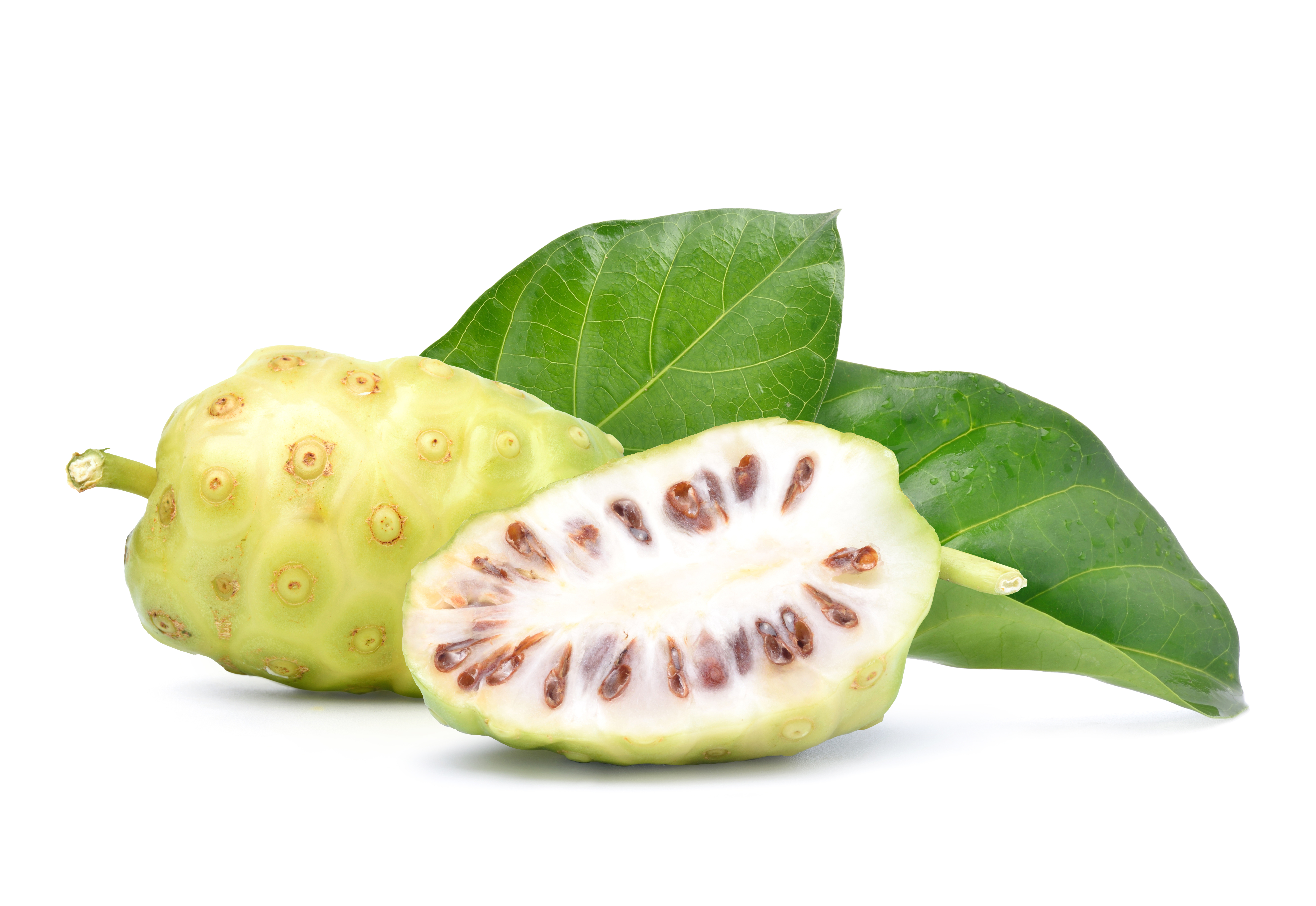Noni << NOH nee >> is a small broadleaf evergreen tree that grows in Australia, India, Southeast Asia, and many islands in the Pacific and Indian oceans. It is also called the Indian mulberry. The noni tree is especially important in Polynesian culture, in which it is widely used in traditional medicine. 
Noni trees grow well in well-drained rocky and volcanic soils with abundant sunlight. They may grow 10 to 20 feet (3 to 6 meters) high with broad, deeply veined waxy green leaves. Small white flowers bloom the year around on multiple stalks. The blooms fuse to form potato-sized fruits that are pale green, yellow, or white and hold many dark brown seeds. The fruits have a soft flesh with a strong unpleasant flavor and odor.
In Polynesia, the noni tree is traditionally the most important of all medicinal plants. Indigenous (native) people of Hawaii, Samoa, and Tahiti consider noni one of the plants essential to life, along with taro and bananas. The roots, stems, leaves, flowers, fruit, and juice were traditionally eaten or applied externally to treat a variety of health problems such as diabetes, high blood pressure, aches, pains, burns, arthritis, tumors, and infections. Today, noni fruit preparations are commercially sold as herbal medicine in the form of juice, dried fruit, and powdered extract.
